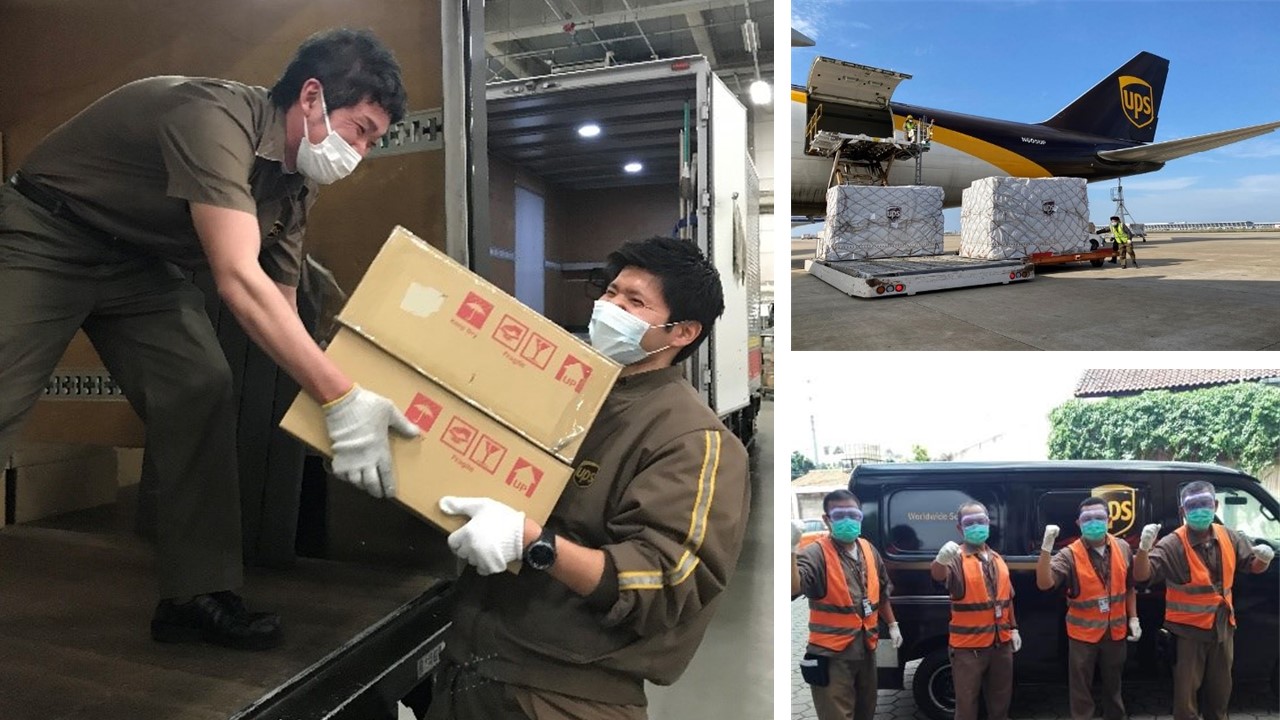
Leading Through COVID-19
When the pandemic struck, the supply chain disruptions turned the world of logistics topsy-turvy. With unprecedented border closures and disruption to air, sea and even ground freight, UPS responded nimbly to reestablish the connections that held global trade together.
Internally, the company’s leadership pivoted just as quickly to manage its workforce, network and operations to ensure that employees could continue to work safely and remain as productive.
We speak with UPS’s APAC VP of Human Resources, Tanie Eio to find out the role of leaders during a crisis like this, and lessons to glean from this pandemic.
Tanie: “At UPS the health and safety of our employees, our customers, and the communities we serve are of utmost importance. Our leaders have an outsized role as stabilisers to ensure timely communication about policies, procedures, and operational changes, and in a personal, ‘human’ way.
Beyond communication, our leaders stepped up on employee engagement. We had two to three APAC-wide communications per week to help employees understand the hygiene protocols, and preventive measures that we were taking in our offices and facilities across APAC. With a large part of our employees telecommuting, we started a weekly e-newsletter titled “We Are With You” to engage them. We provided general tips on working from home and invited employees to share pictures of their home-work spaces, their new ‘work buddies’ and how they are coping with working from home, such as parents with children to care for during the lockdowns. This has become a safe space for employees to connect and remind one another that we are not alone in facing this crisis. We will continue to evolve the tools and platforms to engage our employees as employees ease into a hybrid work model.”
Tanie: “UPS as a leading global logistics company has been called upon in the past to respond to many situations – hurricanes, floods, and even volcanic eruptions. But the impact of these were usually local over a short duration. The current pandemic, on the other hand, is unprecedented in its scale and duration. More than ever, I believe our organisation’s values and culture has been critical. At UPS, daily decisions are guided by our corporate values, mission, and strategy statements. Two of our corporate values are at the core of what we have done during this crisis:
- Teamwork – Determined people working together can accomplish anything
- Safety – The well-being of our people, business partners, and the public is of utmost importance.
As leaders, we strive to inspire these values in everything that we do, and the outcome that we have seen is our employees banding together to go above and beyond for our customers. Both at the frontline and behind the scenes. We hear inspirational stories of employees who against all odds ensured that we continue deliveries to the communities we serve. These stories make me proud that our people have risen to the occasion.”
Tanie: “Every crisis is a test of leadership. From a human resources perspective, the crisis has redefined how we can engage, retain, and develop our employees. In the first quarter of the year, even as the pandemic negatively impacted many businesses, UPS pushed forward with a salary increment for our employees in APAC. This was one of the many ways we showed appreciation for our people, and to give recognition for their hard work and determination. I think it is important for businesses to continue to invest meaningfully in human capital as they adapt to the new normal.
From a business perspective, having a trained, dedicated, cross-functional crisis team is pivotal for crisis preparedness. It is critical to consider how decisions will be made, how information will flow, and ensure that every member of the crisis response team understands the role he or she plays. It is not possible to truly anticipate when a crisis will strike, or the severity of any crisis – but having a team that can be activated on cue, gives you a head start.”
Tanie: “We embarked on a Human Capital Diagnostic Tool (HCDT) in 2019 to “quantify” the maturity of our various Human Capital processes that are usually regarded as intangible and nebulous. It allowed us to gain valuable insights on perceptions of our people and how they experienced UPS as internal stakeholders. I would recommend it to all organisations big and small to use as a yardstick to benchmark and track the progress of your HC transformation journey.”
Korn Ferry’s research over the years have shown that in a knowledge-based economy, where people are the primary determinant of organisational success, the added effort of engaged employees is a vital asset. Our research finding shows a strong linkage between engaged employees and the level of discretionary energy they bring into their work. Engaged employees care about the future of the organisation and are likely to perform better on business-critical key performance indicators such as profit, innovation, or safety. Highly engaged workers are highly motivated and committed and they are enabled, being in the right roles working in a supportive environment. Organisations with highly engaged and enabled employees reported 4.5 times greater revenue growth, improved customer satisfaction by 89 percent and are 50 percent more productive.

If you are a business leader also looking into leveraging on your human capital to accelerate through this crisis, reach out to us for a complimentary advisory Human Capital Health-check at hcdiagnostics@ihrp.sg.


